
by rousza met | Apr 19, 2024 | Job Analysis, Employment Application, Interview Techniques, Job, Skills Gap Analysis
Interview Preparation Strategies: Mastering the Art of the Job Interview

Congratulations on landing a job interview! This is your opportunity to showcase your skills and fit for the position. Effective preparation is key to calming your nerves and making a great impression. Here are some proven strategies to help you prepare thoroughly and increase your confidence ahead of your interview.
Research the Company
- Understanding the Organization
Start by thoroughly researching the company. Visit their website, review their “About Us” section, and understand their products, services, and the industries they operate in. Familiarize yourself with the company’s mission, values, and recent news. This will not only help you tailor your responses but also show your genuine interest in being part of the organization.
- Know the Industry
Broaden your research to include the industry. Being aware of current trends, challenges, and key players can make you stand out as a knowledgeable candidate. This shows that you are engaged in your professional field beyond just seeking employment.
Analyze the Job Description
- Role Requirements
Carefully read the job description and note the specific skills and experiences required. Think about how your background matches these requirements. Be prepared to discuss how your previous job experiences, skills, education, and personal competencies make you the ideal candidate for the job.
- Prepare Your Examples
Use the STAR method (Situation, Task, Action, Result) to prepare concise and compelling stories about your past experiences that demonstrate your qualifications for the job. This method helps you structure your answers in a way that clearly highlights your accomplishments and relevance to the position.
Practice Common and Behavioral Interview Questions
- Anticipate Questions
Prepare answers for common interview questions such as “Tell me about yourself,” “What are your strengths and weaknesses?” or “Where do you see yourself in five years?” Also, prepare for behavioral questions that require you to describe past work experiences as evidence of your skills and abilities.
- Mock Interviews
Conduct practice interviews with friends, family, or mentors. Rehearsing out loud is crucial. It helps you refine your answers, become more comfortable with your narrative, and reduce anxiety. You can also record yourself to review your body language and delivery.
Plan Your Journey and Outfit
- Logistics
Ensure you know exactly where the interview is, how to get there, and how long the journey will take. Arriving a bit early is important, but not too early as it might inconvenience your interviewer. Aim to arrive about 10-15 minutes before your scheduled time.
- Professional Attire
Choose your outfit in advance. Your attire should fit the company’s culture while leaning towards professionalism. When in doubt, it’s better to be slightly overdressed than underdressed.
Prepare Thoughtful Questions
- Demonstrate Engagement
Towards the end of the interview, you’ll usually be asked if you have any questions. Prepare a few insightful questions that demonstrate your interest in the role and the company. Avoid questions about salary or benefits in the first interview; focus instead on learning more about the company’s culture, team, or future projects.
- On the Day of the Interview
Be Mindful of Non-Verbal Cues
Pay attention to your body language. Offer a firm handshake, maintain good eye contact, and sit up straight. These non-verbal cues can communicate confidence and respect.
- Be Authentic
While it’s important to be professional, it’s equally important to be yourself. Authenticity can set you apart from other candidates as it provides a genuine glimpse into who you are and how you will fit into the company culture.
Conclusion
Preparation can significantly impact your performance in a job interview. By researching, practicing, and planning, you set yourself up for success. Remember, an interview is not just about getting the job, but also about ensuring the job is right for you. Go into your interview prepared, confident, and ready to show why you are the best candidate for the position. Good luck!
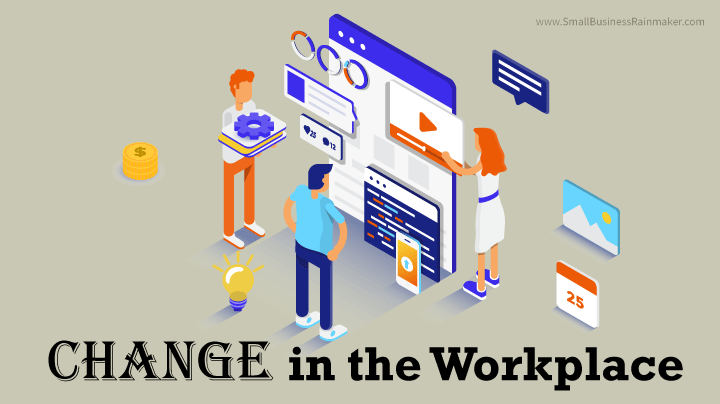
by rousza met | Apr 19, 2024 | Skills Gap Analysis
Adapting to Technological Changes in the Workplace
In an era where technology evolves at lightning speed, adapting to these changes is not just beneficial but essential for career sustainability and growth. From artificial intelligence and automation to cloud computing and virtual collaboration tools, technological advancements are reshaping the way we work. Here’s a look at why it’s important to keep pace with these changes and how you can effectively adapt to them in your workplace.
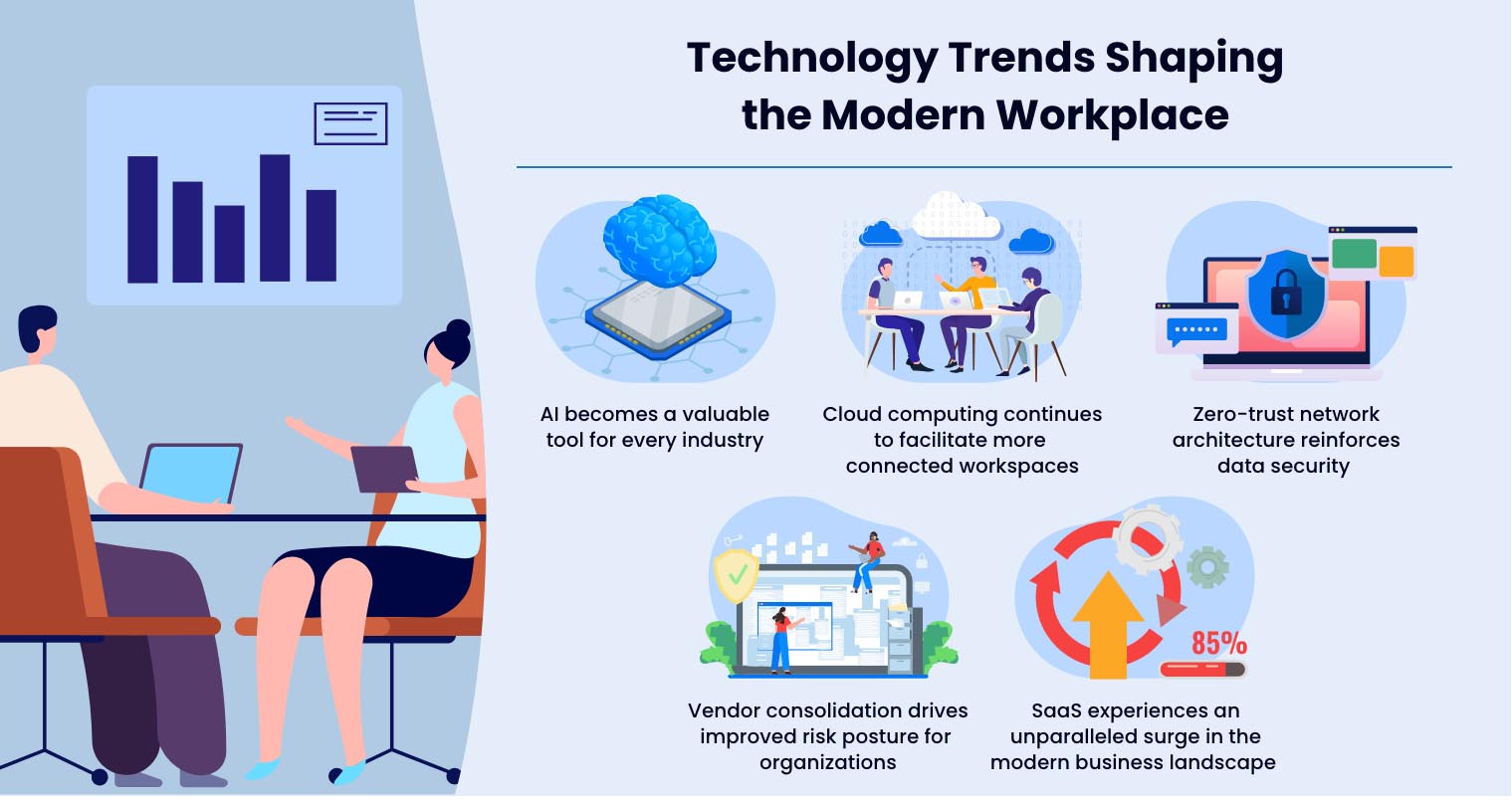
Embracing Continuous Learning
- The Need for New Skills
Technological advancements often lead to the development of new tools and systems designed to enhance productivity and efficiency. Staying abreast of these changes requires a commitment to continuous learning. Employees must be proactive about understanding how new technologies work and how they can be applied to their current roles.
- Learning Resources
Leverage online courses, webinars, and workshops to learn about new technologies. Many organizations offer training sessions when they introduce new tools, but don’t rely solely on these. Look for resources outside of work, such as online platforms like Coursera, Udemy, or LinkedIn Learning, which offer courses on a variety of tech topics.
Adapting Your Mindset
- Openness to Change
One of the biggest barriers to adapting to technological changes is resistance to change. Cultivating an open mindset is crucial. View these changes as opportunities to enhance your skills and improve your efficiency rather than obstacles.
- innovation and Creativity
Adopting new technologies can also provide a platform for innovation and creativity. Use these tools to streamline your workflows, enhance your output, and maybe even create new processes or products that can significantly benefit your organization.
Enhancing Collaboration and Communication
- New Platforms for Teamwork
Technological changes often include the adoption of new communication and collaboration tools. Tools like Slack, Microsoft Teams, or Zoom have transformed how teams interact and collaborate across different locations. Mastering these tools can enhance your ability to work effectively in team settings, especially in remote or hybrid models.
- Building Digital Literacy
As communication increasingly shifts to digital platforms, developing a robust set of digital literacy skills is vital. This not only includes learning how to use new tools effectively but also understanding best practices for digital communication, such as maintaining professionalism in emails and digital meetings.
Staying Flexible and Resilient
- Adaptability
The ability to adapt to new technologies also demands flexibility. The work environment is continually changing, and those who can adjust their methods to incorporate new technologies will likely find greater success.
- Resilience
Encountering challenges while using new technologies is inevitable. Resilience is key in overcoming these challenges. Instead of giving up when you face difficulties, focus on finding solutions and learning from the experience.
Conclusion
Adapting to technological changes is not just about keeping your job or staying relevant. It’s about actively enhancing your capabilities, improving your productivity, and increasing your value to your employer. As daunting as it may seem, the transition can be managed successfully with the right attitude and strategies. Embrace the changes, commit to continuous learning, and utilize new technologies to their fullest potential. By doing so, you not only adapt, you thrive.
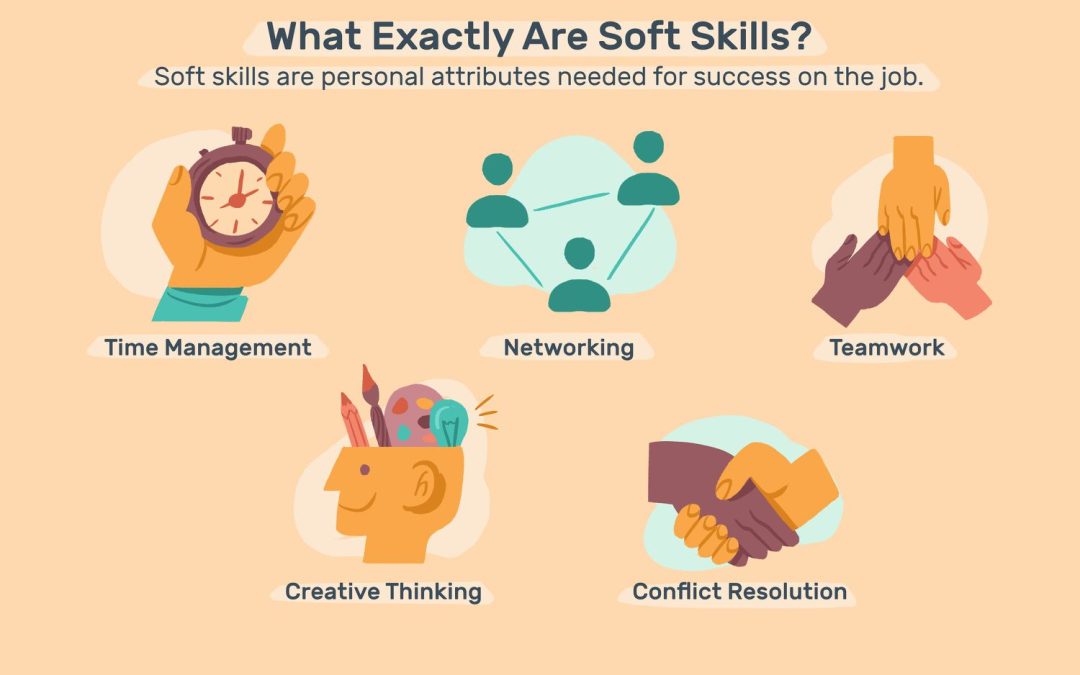
by rousza met | Apr 19, 2024 | Skills Gap Analysis
The Importance of Soft Skills in the Workplace
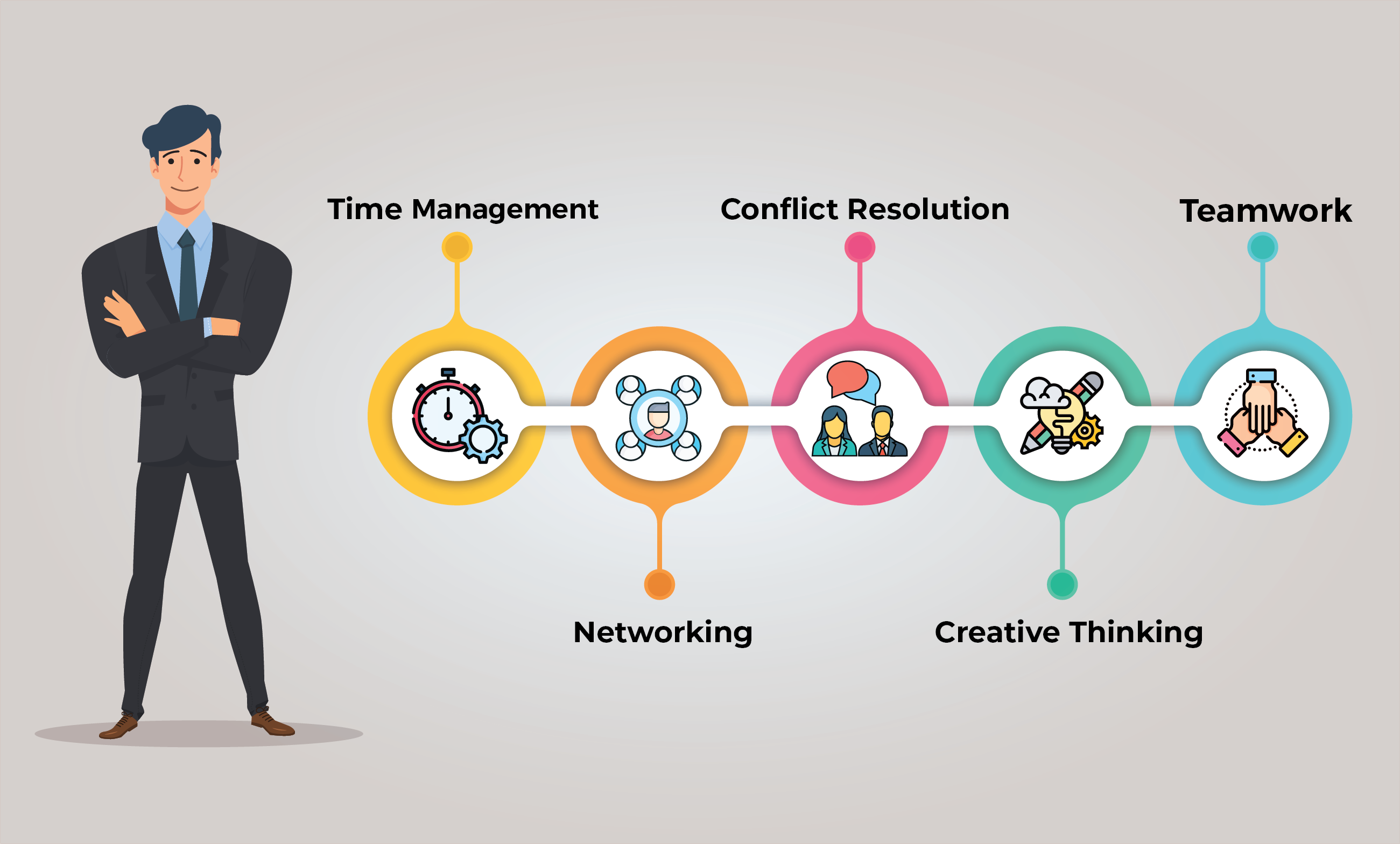
In today’s competitive job market, possessing strong technical skills can help you land a job. However, it’s often your soft skills that will enable you to succeed in the role and progress in your career. Soft skills are the non-technical skills that relate to how you work and interact with others. They can include interpersonal skills, communication abilities, thinking skills, and emotional intelligence. Here’s why soft skills are becoming increasingly important in the workplace.
Building Strong Relationships
Soft skills such as communication, empathy, and teamwork are essential for building strong relationships with colleagues, clients, and stakeholders. Effective communication ensures that you are able to convey your ideas and understand others' points of view. Empathy allows you to appreciate the feelings and perspectives of others, fostering a more collaborative and supportive work environment. Teamwork brings different strengths and perspectives together, which can lead to more innovative solutions and successful projects.
Enhancing Job Performance
Soft skills directly impact your effectiveness in a role. Skills like time management and organizational abilities help you to be more efficient and productive. Problem-solving and critical thinking enable you to navigate challenges and come up with solutions that are beneficial for your team and the organization. Furthermore, leadership and adaptability skills are crucial when you need to take initiative or manage change, which are common demands in many workplaces.
Facilitating Career Advancement
Employers not only look for candidates who can perform well but also those who have the potential to lead and inspire others. Soft skills such as leadership, initiative, and strategic thinking are often what set candidates apart for promotions and more advanced roles. As you climb the career ladder, the technical aspects of your job might become less significant compared to your ability to manage teams, strategize, and drive organizational success.
Boosting Workplace Culture
A positive workplace culture significantly impacts employee motivation, satisfaction, and productivity. Soft skills play a key role in shaping a healthy workplace environment. Respect, team spirit, and a positive attitude contribute to a workplace where everyone feels valued and motivated. Moreover, conflict resolution skills and emotional intelligence can prevent misunderstandings and tensions from escalating, maintaining harmony within the team.
Adapting to the Changing Work Environment
The modern workplace is dynamic and constantly evolving. Adaptability and learning skills are therefore essential to keep up with new technologies, working methods, and industry shifts. Additionally, as remote work becomes more common, the ability to manage one’s time and communicate effectively across digital platforms is more important than ever.
Conclusion
In conclusion, while technical skills may get your foot in the door, your soft skills are what open most of the doors to come. They enrich your professional interactions and increase your overall career satisfaction. Investing in your soft skills development is just as important as developing technical skills. As workplaces continue to evolve, those with strong soft skills will not only adapt but thrive. Start focusing on building these crucial skills today to ensure success in your current role and beyond.
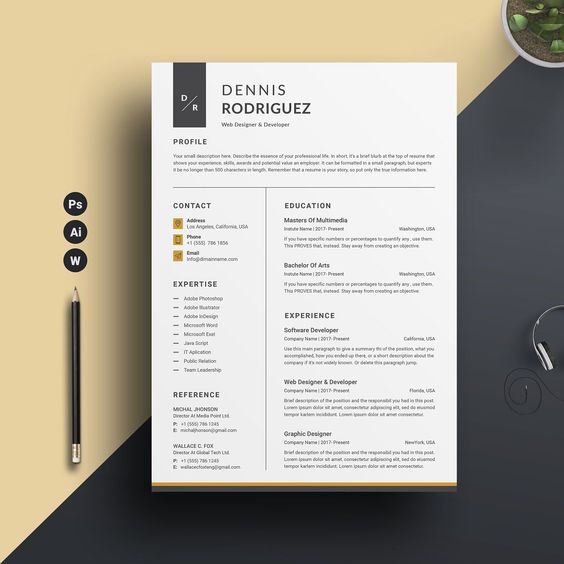
by rousza met | Mar 19, 2024 | Employment Application, Employee Handbooks, Employee Orientation, Job, Job Analysis
CV Templates In Khmer and English Download
“Discover the perfect blend of professionalism and cultural identity with our CV templates, available for download in both Khmer and English. Whether you're applying for jobs locally or internationally, our templates are designed to showcase your skills and experiences in the most effective way. Download now and take the first step towards your dream job!”
=> Click the link to Download here: https://drive.google.com/drive/folders/1HjFpRJCUGfNIJVGqACJqW-zsm9u-UH-t?usp=sharing
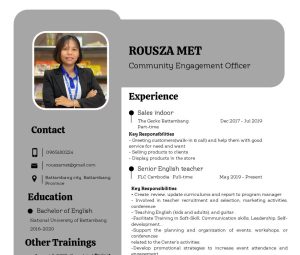

Good Luck!
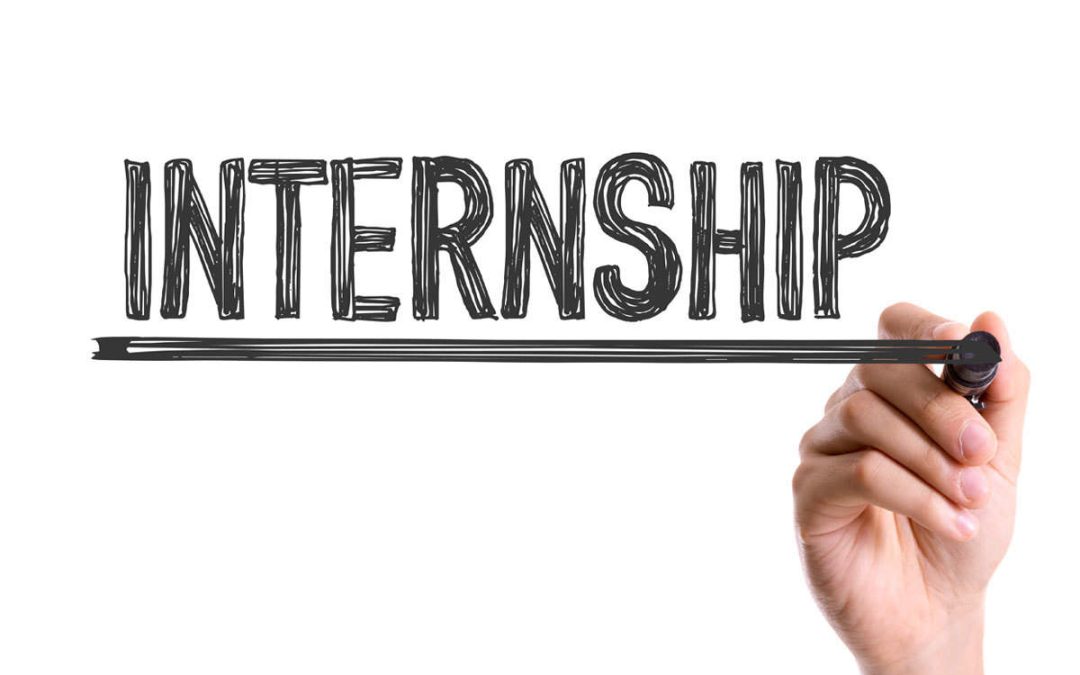
by rousza met | Mar 18, 2024 | Job, Job Analysis, Skills Gap Analysis, Study
Title: Exploring Opportunities: Finding the Right Internship for You
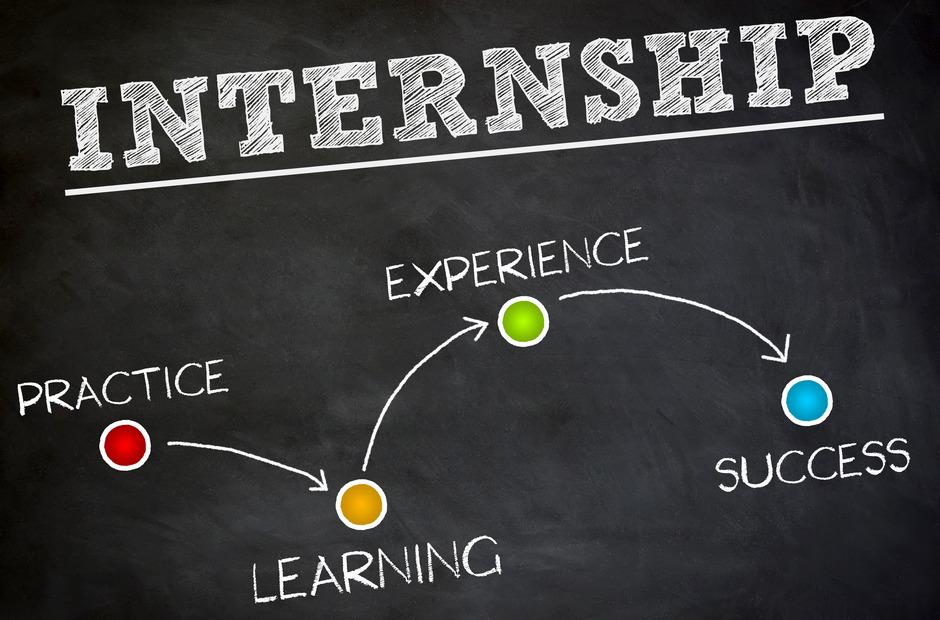
Embarking on an internship journey is an exciting step towards shaping your career path and gaining invaluable real-world experience. However, with countless opportunities available, finding the right internship can feel like navigating a vast ocean. How do you identify the perfect fit amidst a sea of options? Let's embark on a journey of exploration and discovery to help you find the internship that aligns with your goals, interests, and aspirations.
1. **Define Your Goals and Objectives:**
Before diving into the internship search process, take some time to reflect on your career goals and what you hope to achieve through an internship experience. Consider the skills you want to develop, industries you're interested in exploring, and the type of work environment that suits you best. Clarifying your objectives will help you narrow down your search and focus on opportunities that align with your aspirations.
2. **Conduct Research:**
Once you have a clear idea of what you're looking for, it's time to start researching potential internship opportunities. Explore various companies, organizations, and industries that align with your interests and goals. Utilize online job boards, company websites, professional networks, and career fairs to gather information about internship programs available in your field of interest.
3. **Network and Seek Recommendations:**
Networking is a powerful tool for uncovering hidden internship opportunities and gaining insider insights. Reach out to professionals in your desired industry through networking events, informational interviews, and online platforms like LinkedIn. Don't hesitate to ask for recommendations or referrals from professors, mentors, or peers who may have connections in your field of interest.
4. **Utilize Career Services:**
Many universities and colleges offer career services and internship placement assistance to students. Take advantage of these resources to access job listings, resume reviews, interview preparation workshops, and career counseling sessions. Career advisors can provide valuable guidance and support throughout the internship search process.
5. **Tailor Your Application Materials:**
Once you've identified internship opportunities that interest you, tailor your resume, cover letter, and any other application materials to highlight relevant skills, experiences, and qualifications. Customize each application to align with the specific requirements and preferences of the internship program or organization.
6. **Prepare for Interviews:**
As you start receiving interview invitations, it's essential to prepare thoroughly to make a positive impression. Research the company, practice common interview questions, and be ready to articulate your interest in the internship and how you can contribute to the organization's success. Additionally, prepare questions to ask the interviewer to demonstrate your enthusiasm and curiosity.
7. **Evaluate Offers Carefully:**
Congratulations! You've received one or more internship offers. Take the time to carefully evaluate each offer based on factors such as the job responsibilities, learning opportunities, company culture, location, and compensation. Consider how each opportunity aligns with your goals and priorities before making a decision.
8. **Stay Flexible and Open-Minded:**
Keep in mind that the internship search process may involve some twists and turns, and you may encounter unexpected opportunities along the way. Stay flexible and open-minded as you explore different options and be willing to adapt your plans based on new information and experiences.
Finding the right internship is a journey of self-discovery and exploration. By defining your goals, conducting thorough research, leveraging your network, and staying proactive, you can uncover exciting internship opportunities that propel you closer to your career aspirations. Remember to approach the process with enthusiasm, curiosity, and a willingness to learn and grow. Your perfect internship awaits – go forth and explore!










